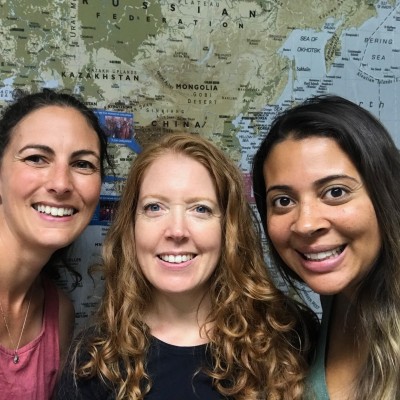People here are truly living on ‘the edge’, facing poverty and violence, trapped in dangerous conditions and unable to leave.
Children on the Edge have been working in Kutupalong for over a decade, supporting education for thousands of refugee children.
For people here, there is no hope in sight for a safe return to their home country of Myanmar. They are isolated and desperate, reliant on dwindling food aid and stretched health services.
Fires in Kutupalong are common, and are a frightening reminder of the appalling conditions Rohingya refugees face. Cramped conditions mean that they spread easily and rapidly. Because no permanent structures are permitted, houses are built with tarpaulin and bamboo; quickening the spread of fire further still.
In the first weeks of 2024 a fire devastated one area of the camp, destroying more than 2,500 homes and leaving thousands of families without shelter. Three of our learning centres in the camp were also reduced to ashes in the blaze.
Sadly this is not uncommon, fires are often started deliberately by criminal organisations, for retribution and to spread fear within the camps.
In March 2023, a huge fire destroyed homes, learning centres, health centres and mosques, leaving 12,000 people without shelter. Four of our learning centres were destroyed in fires in 2022.
Tin Lwin, whose home was destroyed in the blaze in 2023, told our staff that his two young children were out playing at the time and said that two worrying hours passed before the family was reunited.
“There was a huge crowd. I was busy trying to save my house. It was a very bad time. We are still in fear that this might happen again. There is no safety or security here”.
Alongside the risks posed by frequent fires in the camp, tensions between political factions and affiliated armed groups have led to widespread violence and unrest.
Rohingya militant groups that were once united in their fight against the Myanmar military following the brutal 2017 genocide that led to the mass exodus of Rohingya to Bangladesh, are now turning against each other.
Amidst the isolated and desperate conditions in the camp, their disagreements have escalated into brutality. With no police or government protection, and little recourse for justice, people living in such close quarters, crowded into flimsy shelters, fear for their lives, as the militants target community leaders and anyone considered a ‘government informant’.
Poor sanitation already leads to frequent outbreaks of scabies, measles, dengue fever and cholera. Food rations have decreased in recent years and without adequate nutrition, the Rohingya living in Kutupalong will be at further risk of measles and cholera outbreaks.
Along with other agencies working in Kutupalong, we are increasingly concerned about conditions in the camp.
Through our education programme, we remain committed to supporting refugee children with high quality education in our colourful learning centres; giving them hope for a better and brighter future.



